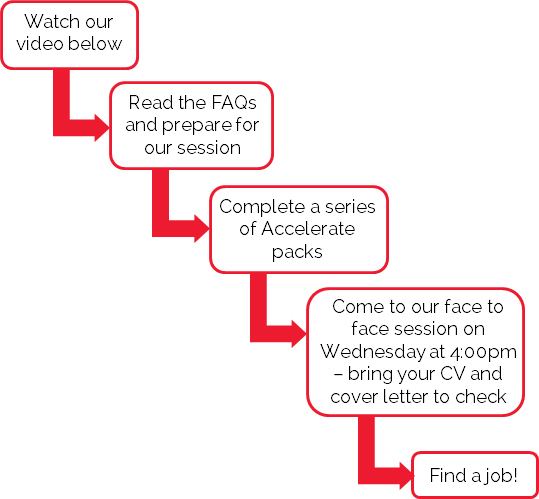Jobs Club
Welcome to BROWNS Jobs Club!
Our Jobs Club is a free service for our students that want to take advantage of the many job opportunities that are available during their stay in Australia. There are four stages of our Jobs Club before you can go and start looking for a job.

To start with we have a series of Accelerate lessons that you can do during your self-study hour each day. Please ask the Accelerate teacher about these. For example, in pack 1, you will find ‘Important information, sample resumes and cover letters’ and in Pack 2, you will find information about ‘how to find work and preparing for job interviews’.
A face-to-face session with one of our English teachers takes place each week at our Brisbane, Gold Coast and Melbourne campus. This session will expand on the FAQs in the next tab. During the session, you will
- understand the nuances of Australian workplace culture
- learn about the styles of questions asked in an interview situation
- go through your CV (resume) so the teacher can correct and offer advice
- network with peers and teachers to benchmark against best-practice efforts.
Put your name down at Student Services any time before the session. Have a copy of your CV (resume) ready to be looked at.
You should then have all the necessary knowledge to prepare for your job search.
